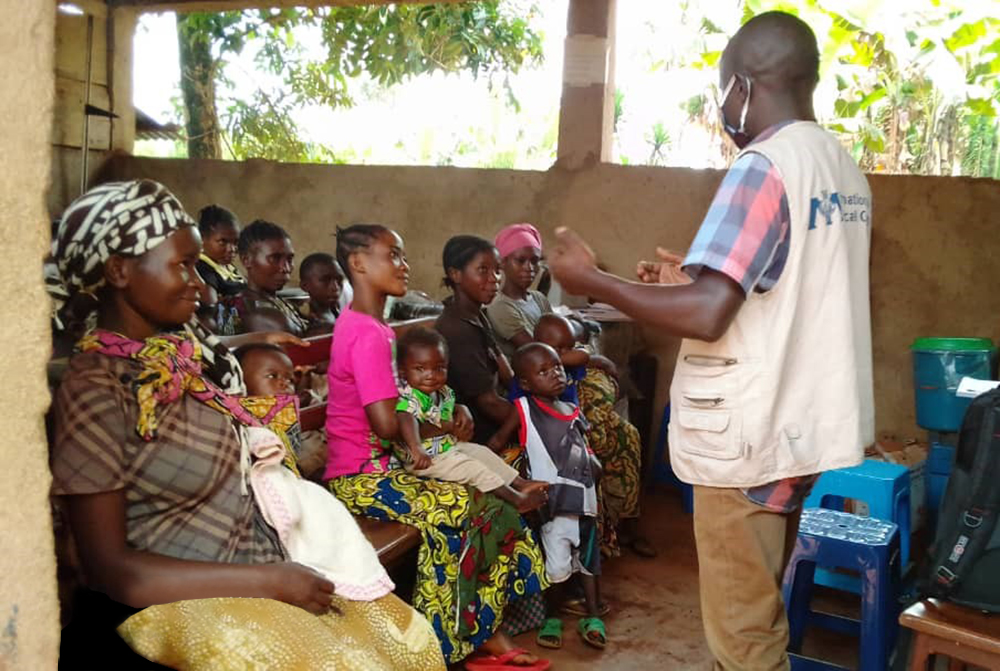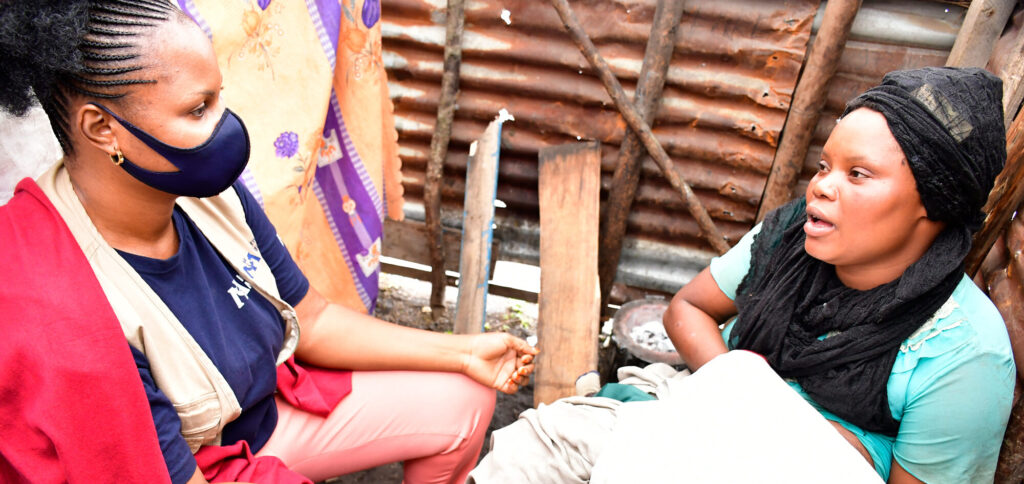Women from the surrounding villages gather in Bingo Health Center in the North Kivu province of the Democratic Republic of the Congo (DRC), having walked as far as 10 kilometers to deliver their babies at the facility or to receive pre- or post-natal care. There, they also learn about breastfeeding.
“A lack of knowledge of lifegiving practices—such as breastfeeding immediately after giving birth and exclusive breastfeeding—leads to poor health outcomes,” says Mbusa Modeste, an International Medical Corps Health Officer in the Mabalako health zone of North Kivu.

Another challenge to breastfeeding is the timing of pregnancies. Though women often agree to breastfeed their children as long as possible, they frequently become pregnant again soon after giving birth. Family planning is still a challenge, and because the timing of pregnancy is often not within their control, the women stop breastfeeding their children once they become pregnant again.
At the health center, International Medical Corps educates women on the importance of proper breastfeeding, improved hygiene and other recommended health practices, including complementary feeding—the process of adding other foods and liquids when breast milk alone is no longer sufficient to meet the nutritional needs of babies. Mbusa encourages the women who come to the center to breastfeed exclusively for six months. He shows them the proper positioning for breastfeeding their babies and watches the women smile as they learn how to hold their babies during breastfeeding.
“They say, ‘Thanks to your lessons, we will make sure to continue breastfeeding up to six months and reach out for assistance if we have any questions,’” Mbusa says. This type of support is just one more way that International Medical Corps improves the health of the community, helping women and children thrive in the months after childbirth.
